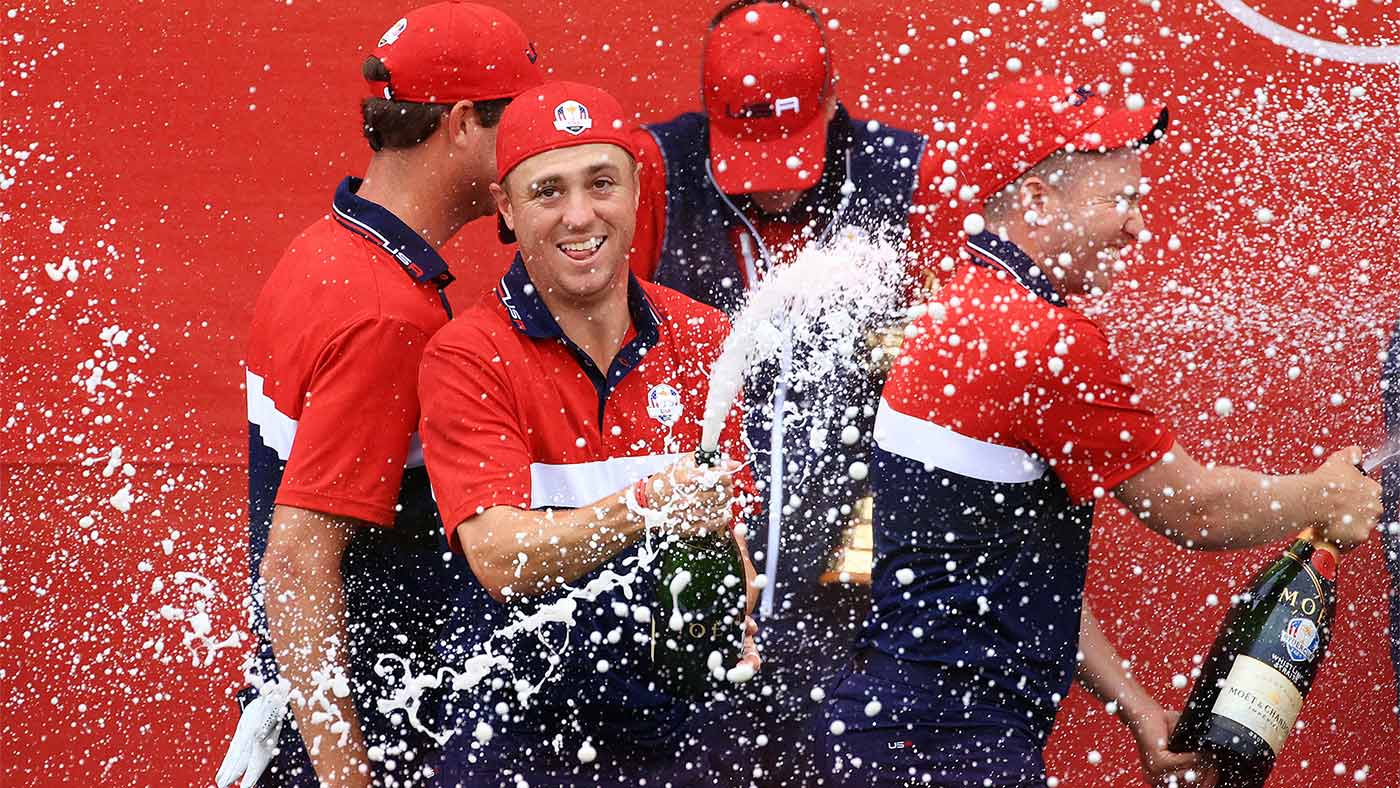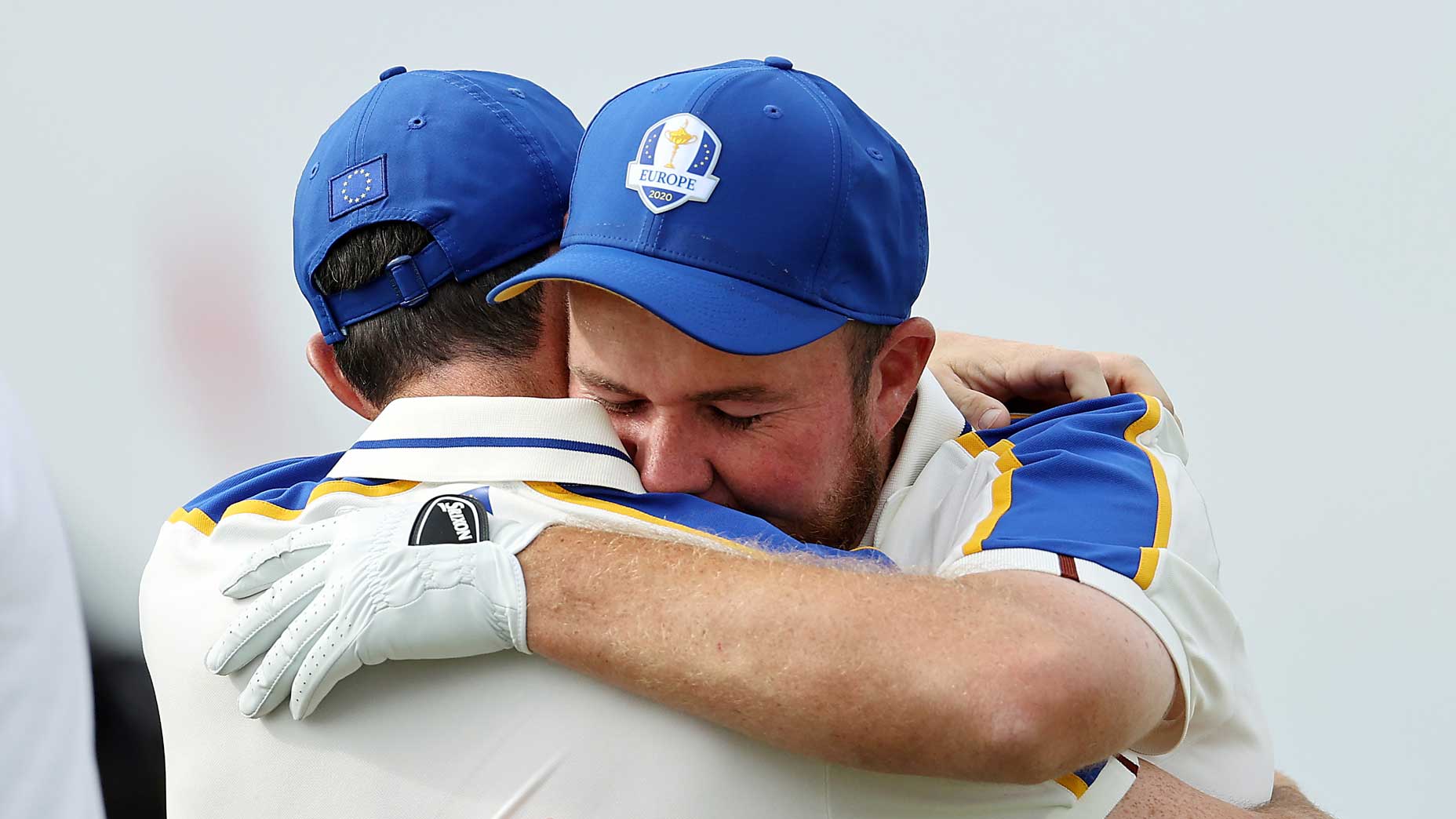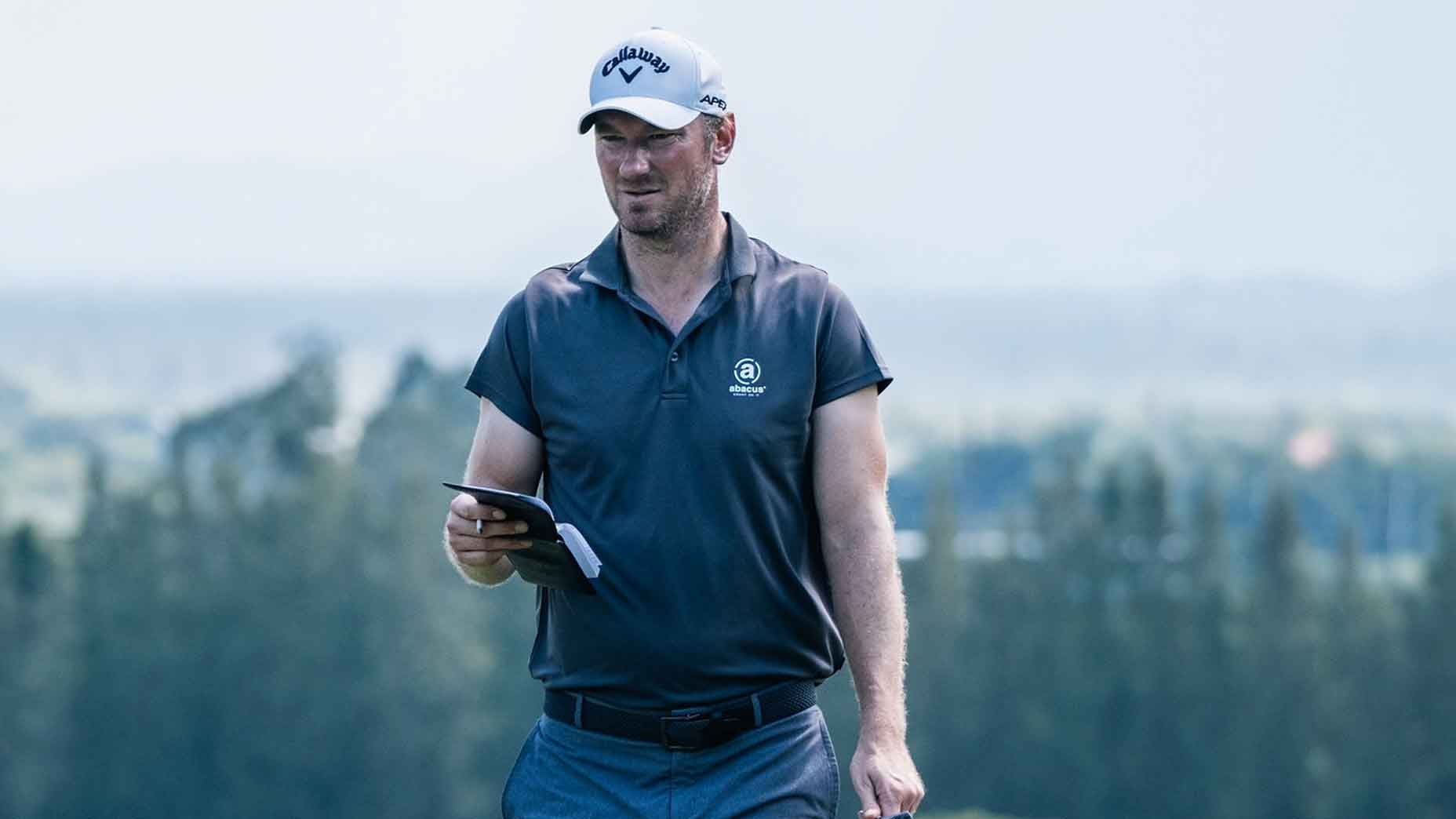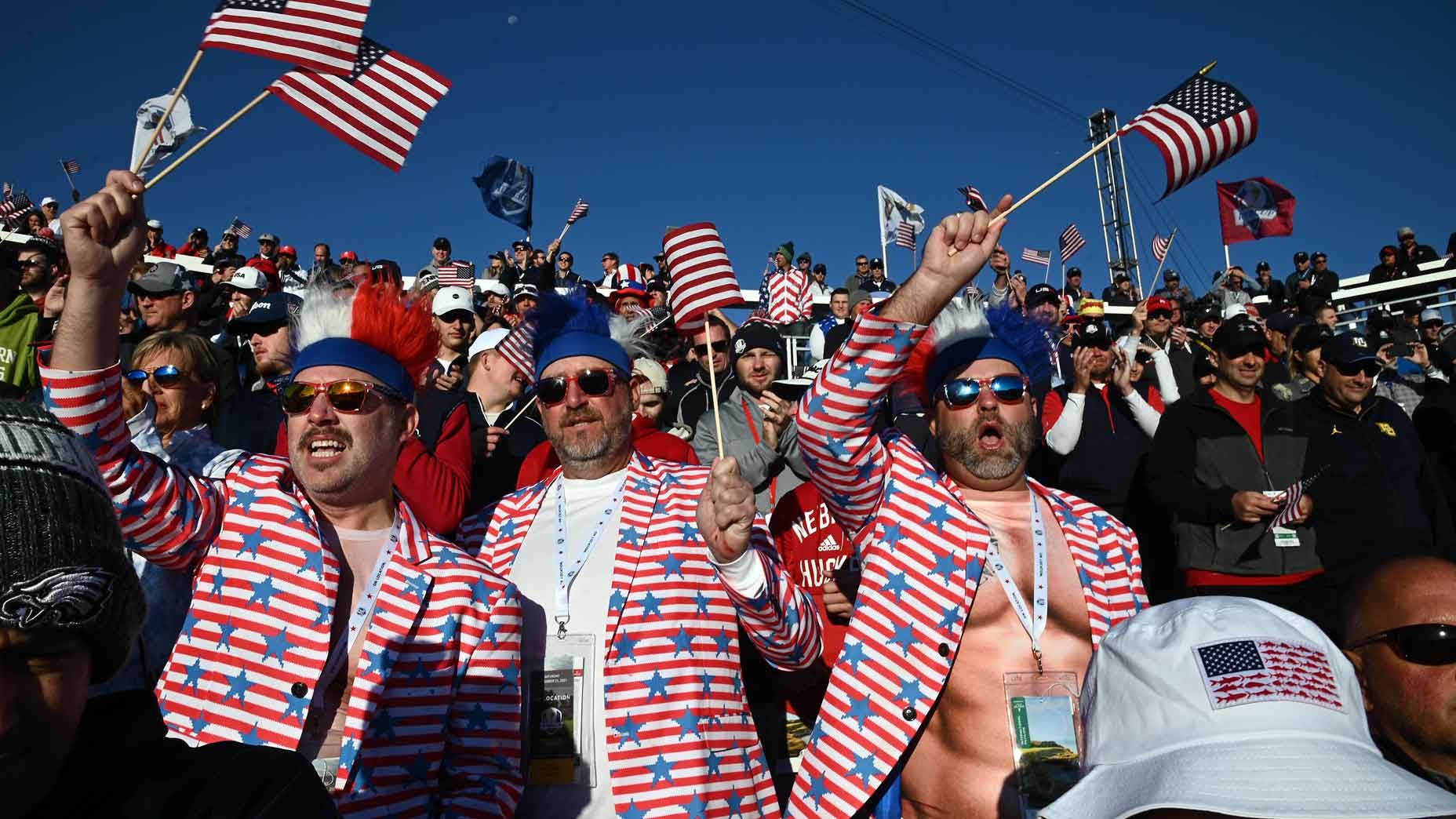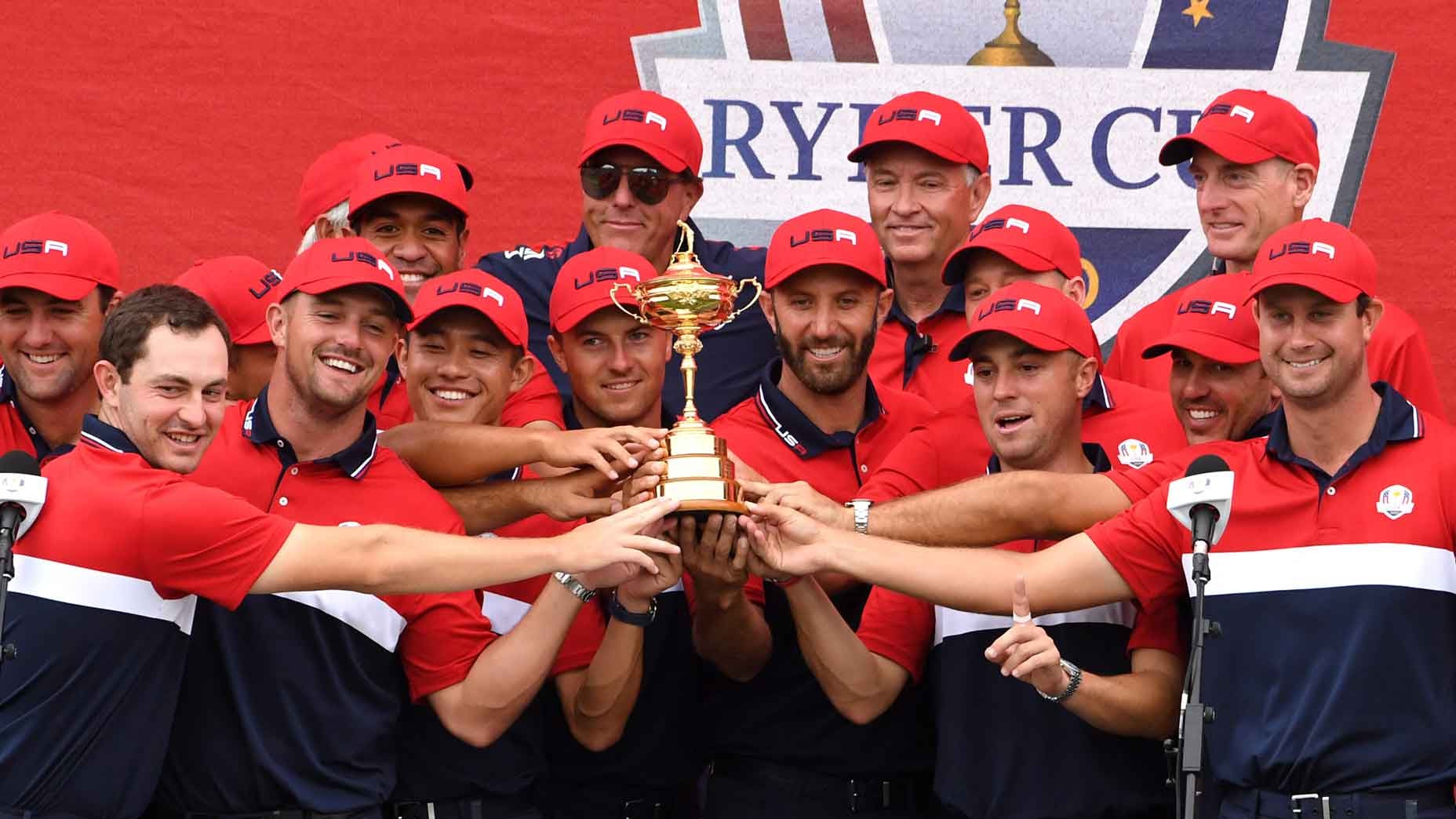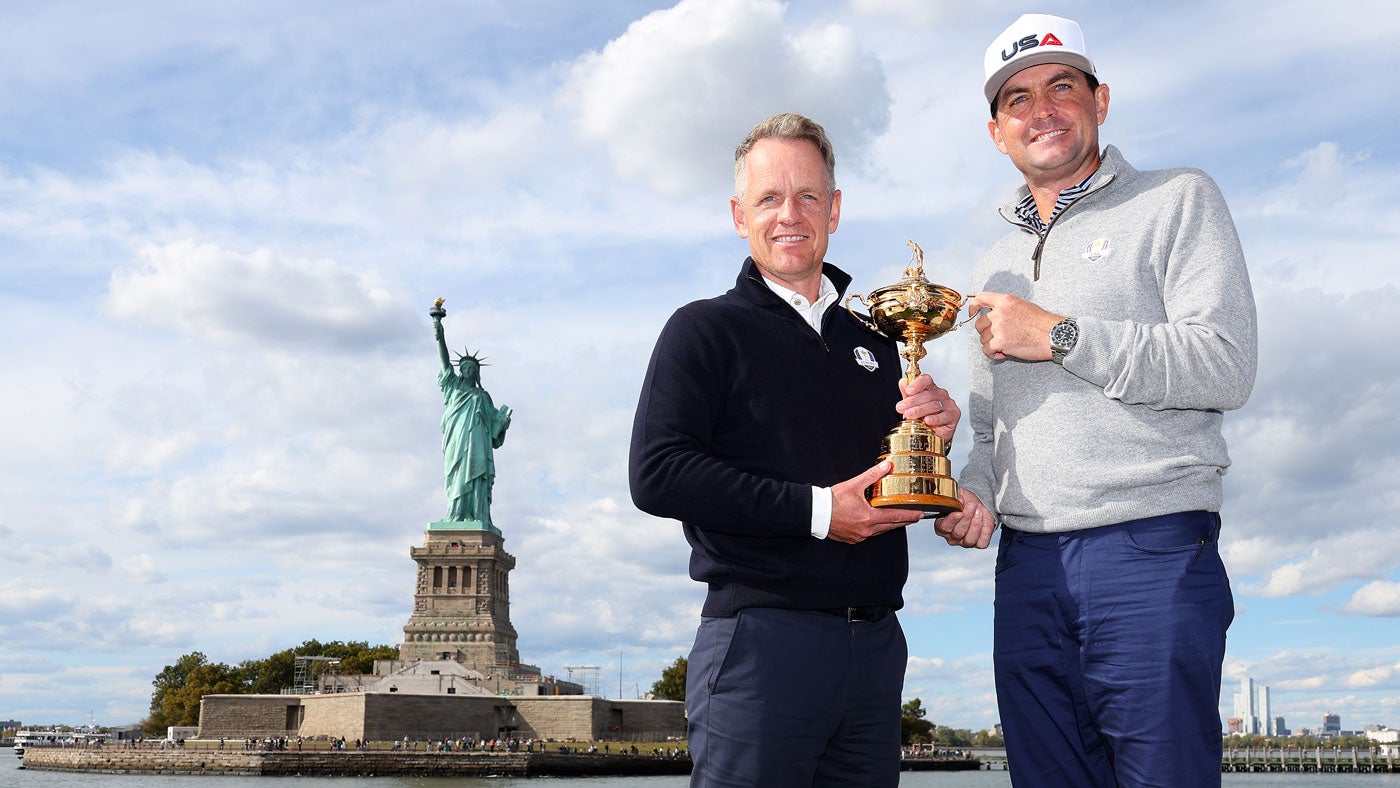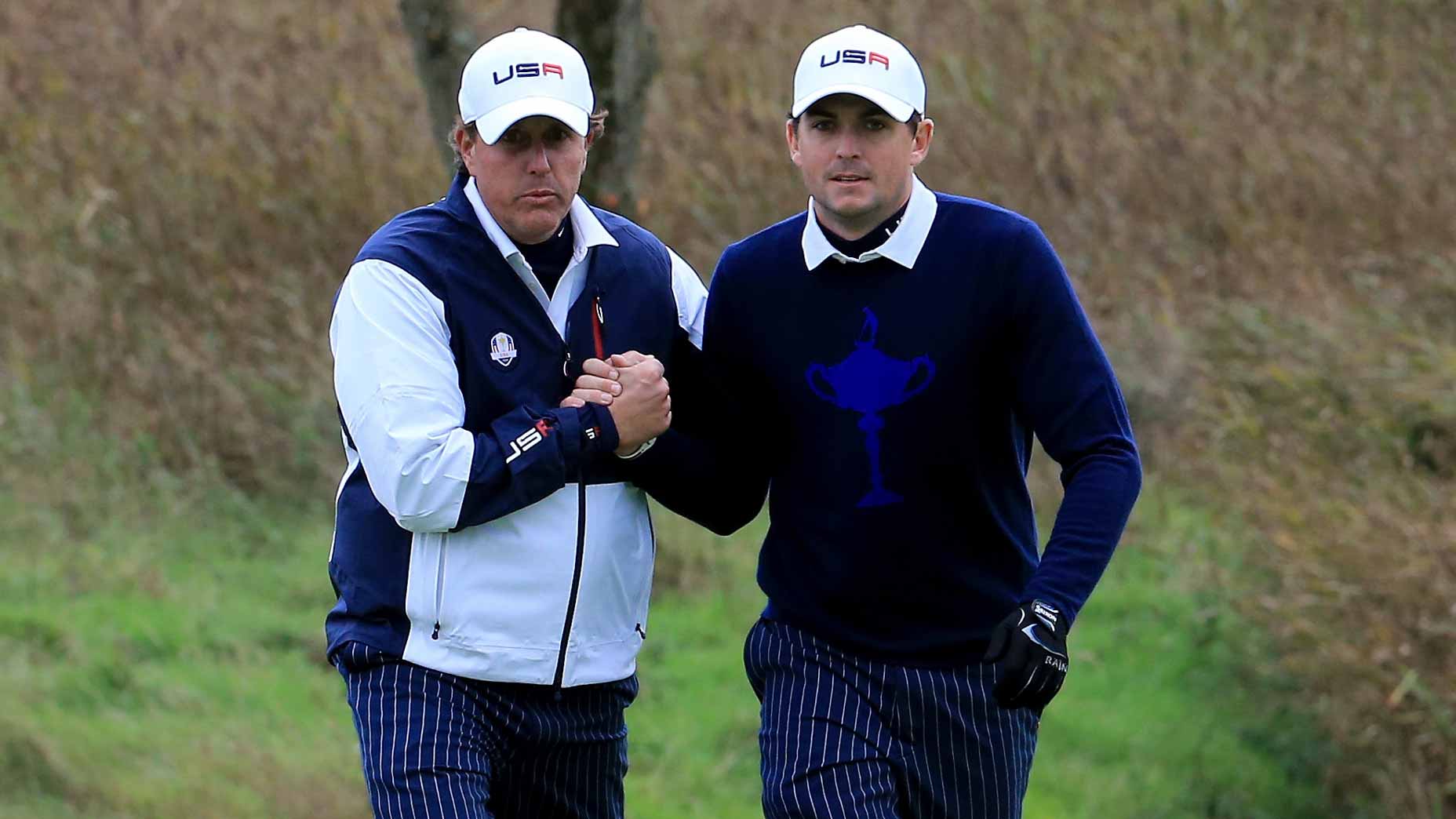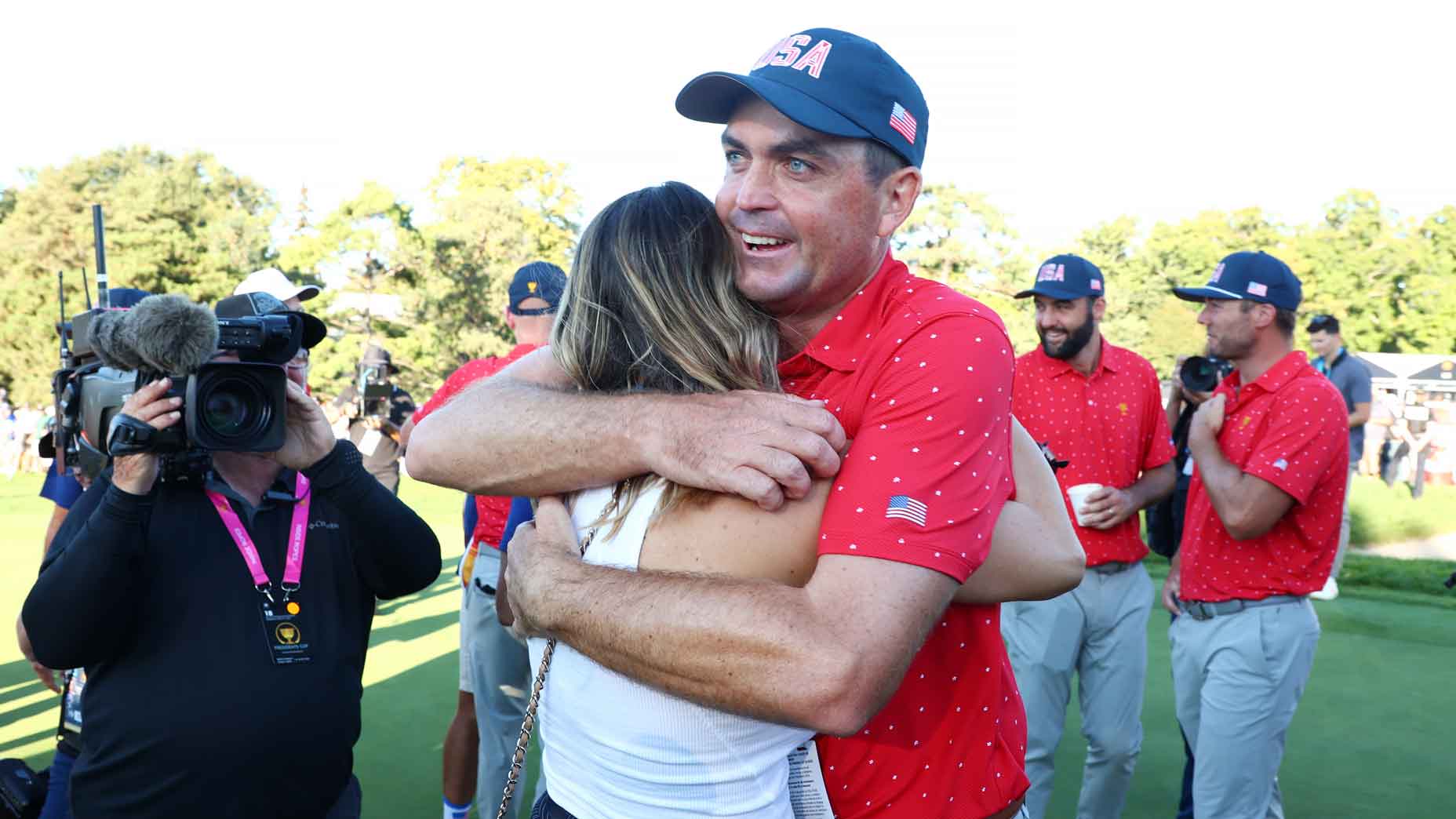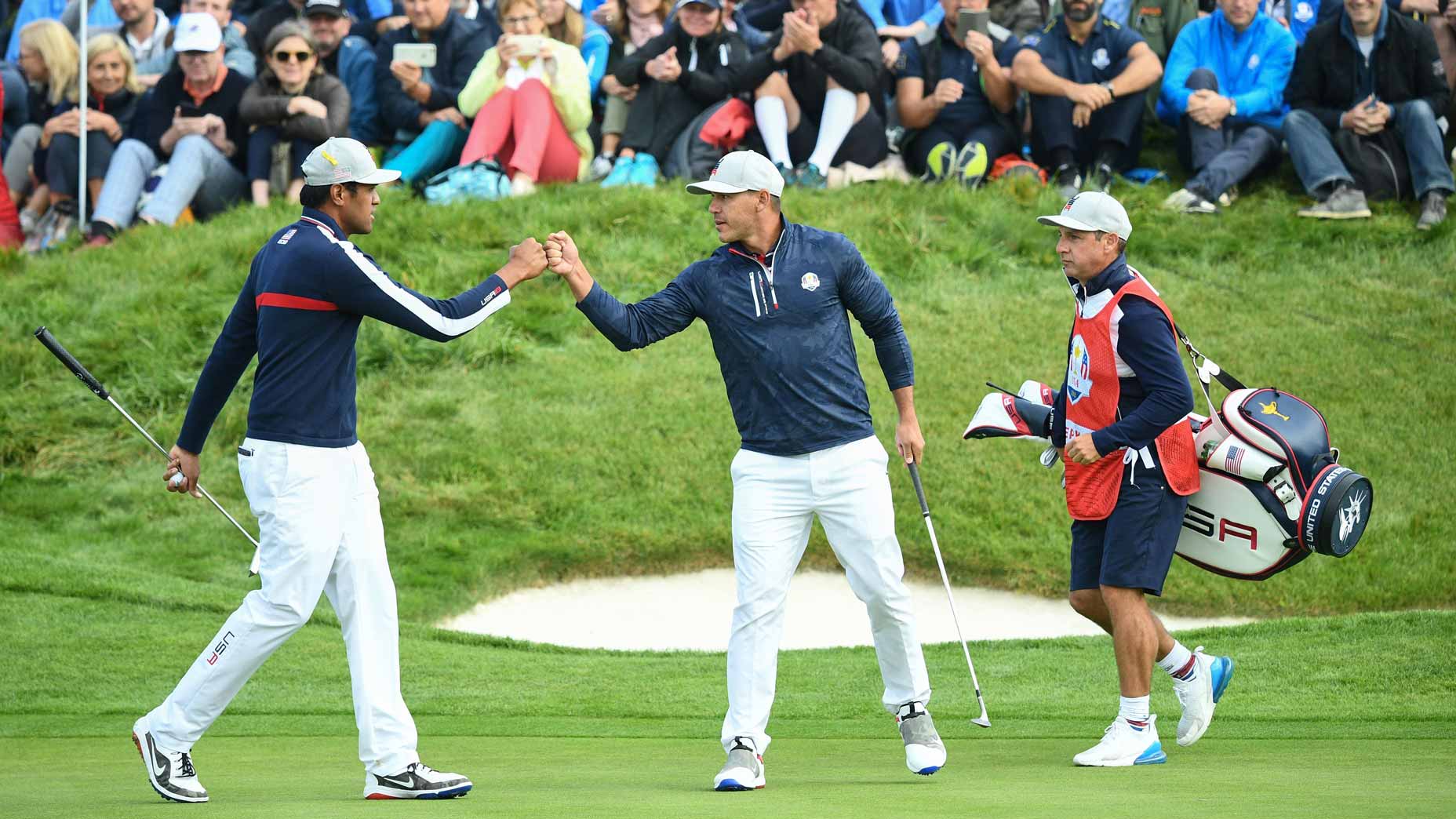HAVEN, Wis. — After a three-year wait for this Ryder Cup, the actual three-day event zipped on by, like a Jon Rahm backswing.
You could make the case that this delayed Ryder Cup, special lakeside edition, was over on Sept. 8, when the U.S. captain, Steve Stricker, announced his six captain’s picks, joining the six household names who had already made it on points. The U.S. team was loaded with talent, top to bottom. Talented, and (broadly speaking) on form.
It was about then that Paul Azinger, a former American Ryder Cup captain, started thinking (and telling some people) that the Americans would win and win big for the most basic reason known in all of sport: collectively, they were way better than their competition.
You could make the case that this Ryder Cup at Whistling Straits was over by High Noon on Friday — first day, first session, alternate shot — when the Europeans struggled mightily on their one and only chance to take all that better-on-paper business and shove it in their opponents’ faces. The Americans won that session, 3 points to 1.
But this next part is hard, cold fact, no case-making necessary: the 43rd Ryder Cup was decided when Collin Morikawa, the Champion Golfer of the Year (he won The Open in July), made a two-foot birdie putt on 17 at 3:35 p.m., Badger time. Morikawa’s birdie there meant he couldn’t lose the match, though he still had the last hole to play, and the NBC Sports telecast still had 90 minutes to go. With a guaranteed half-point in that match, the U.S. had 14.5 points secured, and that’s all you need. Game, set, match, trophy, even if it wasn’t official yet.
The more and more I play in this event the more I realize this is the best event in golf, bar none.
Yes, this is really happening: the Ryder Cup, the trophy itself, will be in the United States for the next two years. U.S. 19, Europeans 9.
Since 1979, when the point total was reduced to 28 and the longstanding Great Britain and Ireland team was expanded to include all of Europe, no team has scored more points.
“This is the greatest team of all-time, right here,” Stricker said, moments after hoisting the itty-bitty statue. The average World Ranking of his 12 players was 8.9.
The fellas were standing behind their captain, a Wisconsin native, and after 18 months of pandemic weirdness, and a golf season that does not end, they looked ready to pop corks, take their shirttails out, and turn up the volume.
As for Stricker’s comment, maybe it was the New Glarus (celebrated Wisconsin beer), coupled with the lopsided win, talking.
At the 1967 Ryder Cup, the American captain, Ben Hogan, introduced his team by saying, “Ladies and gentlemen, may I introduce the finest golfers in the world.” The teams played for 32 points then and the U.S. won 23.5 of them. The American team included Arnold Palmer, Billy Casper, Gene Littler, Julius Boros. Good, but not the 1981 team, which had 10 future World Golf Hall of Famers on it.
But let’s not quibble. This 2021 U.S team was an outstanding one, led by Dustin Johnson, who, at age 37, played in all five sessions (the only U.S. player to do so), winning 5 points. Not only that, Johnson carried himself with a comportment that Hogan, Nicklaus and the very absent Tiger Woods would recognize.
Well done, sir.
Then there was Patrick Cantlay, 29, who played in four sessions and won 3.5 points, and who carried himself with a comportment that Hogan, Nicklaus and the very absent Tiger Woods would recognize.
Well done, sir.
Plus Morikawa. He, too, played in four matches, won 3.5 points, and carried himself with a comportment that Hogan, Nicklaus and the very absent Tiger Woods would recognize.
Well done, sir.
And let’s not forget Xander Schauffele, 27, the Olympic gold-medal winner, who played in four matches, won 3 points, and (yes) carried himself with a comportment that Hogan, Nicklaus and the very absent Tiger Woods would recognize.
Well done, sir.
Highlight reels are available, should Bryson DeChambeau, Justin Thomas and Brooks Koepka want to see examples of golfers playing in a low-stakes, match-play, team competition with admirable restraint. These are three players who revel in their cheekiness. Thomas and DeChambeau play to the cameras and the fans, likely revealing their interior lives, as golf does. They crave attention, noise, drama. As for Koepka, who was profanely dismissive to two referees who did not give him the relief he sought on Saturday, he should know that, to put it simply, they were doing their job, professionally and impartially. They disagreed with the four-time major winner.
It should also be said that this detour is old-guard sidebar stuff. The fact is, the game is changing, its culture is changing, its stars are changing. You can see it. Maybe Apple will invent a product called iGolf.
Let’s return to the 21st century: this U.S. Ryder Cup team was a first cousin to the last U.S. team, the Presidents Cup team of 2019, led by playing captain Tiger Woods, which won a road game at Royal Melbourne. Jordan Spieth wasn’t on that team, but he’s been on other Presidents Cup teams, and he said Sunday night that Stricker’s Ryder Cup team felt like the Presidents Cup teams he has been on. He played for Fred Couples in 2013, for Jay Haas in 2015 and Stricker in 2017. The U.S. won all three. Couples was an assistant captain in ’15 and ’17 — and again this year.
By tradition, Presidents Cup captains are more likely to let the players have a significant voice in team management. That was Stricker’s MO. At the winners’ press conference Sunday night, 12 players and their captain gathered in one place. Nobody seemed less interested in pontificating on the results than Stricker.
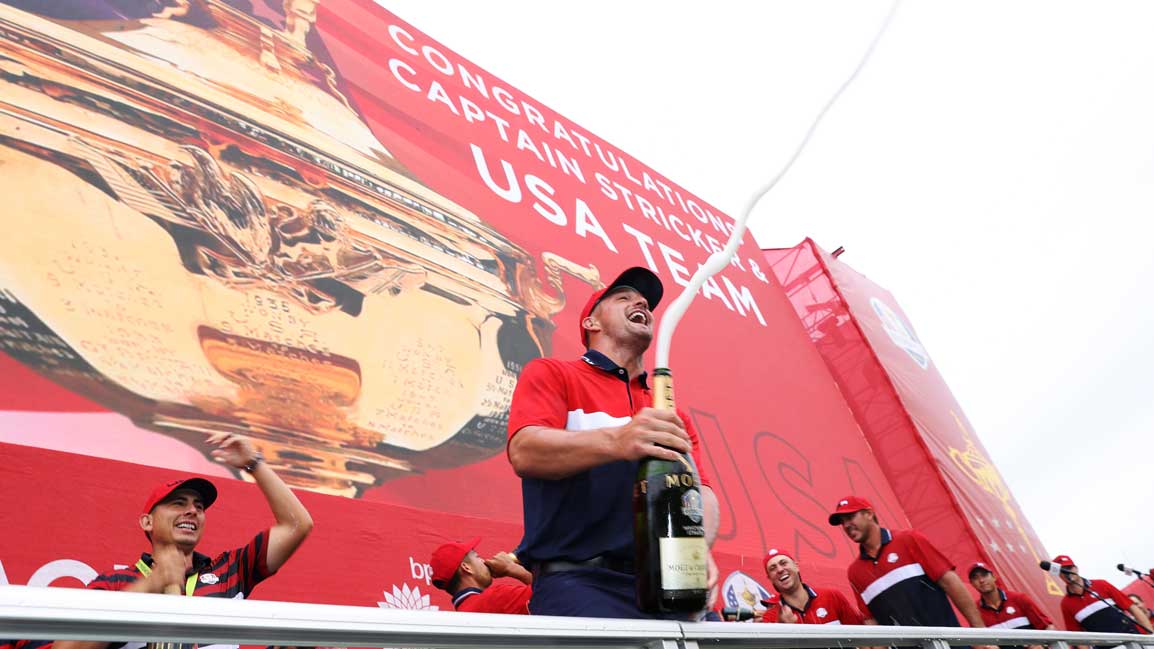
Schauffele smoked a cigar. Morikawa held a Champagne bottle. Beers came in both cups and cans. Johnson was asked this only-at-the-Ryder-Cup question: “You being the oldest player on the team, do you still think you have the stamina to out-party all these guys tonight?”
“Abso–”
Here Johnson paused, a placeholder for where the F-bomb in gerund form is normally dropped.
“lutely.”
It was a strange press conference, even allowing for how odd these winning press conferences at Ryder Cups can be. No moment was odder than this one, when Thomas responded to a question about a purported Tiger Woods message to the team. A reporter asked if Woods’ message to the American team was to step on the necks of the Europeans.
“Tiger?” Thomas asked, not playfully. “Tiger who? What are you talking about?”
“The text,” Johnson said, maybe trying to be helpful.
“What did [Tiger] say?” Thomas asked the reporter.
Woods has played on eight Ryder Cup teams and has been on only one winning team. The exchange with Thomas was a reminder of how complicated every little public thing regarding Tiger Woods can be. Woods has not had a single public appearance since a Feb. 22 car crash in Los Angeles. He was expected to be Stricker’s go-to deputy at this Ryder Cup. That did not happen. The mood with him present would surely have been different. More intense.
The Americans didn’t lose a session over Friday, Saturday and Sunday, on their way to 19 points. You might find it odd to focus now on the first three they won, in the Friday morning alternate-shot session. But the view here is that those three points, to the Europeans’ lone point, made all the difference.
That Friday was windy and cool. Good for the Europeans.
The Americans didn’t care.
With the brat-loving fans rooting lustily for the home team, the Europeans could have successfully adopted an us-against-the-world mentality, as the winning European team did at the women’s Solheim Cup in Toledo, Ohio, in early September.
They didn’t.
The Europeans had some name-brand players going out on that morning. Sergio Garcia and Jon Rahm and Viktor Hovland. Rory McIlroy.
The Americans didn’t care.
The Friday morning game was foursomes, aka alternate shot. (You play one shot, your partner plays the next, all the way to the bottom of the hole — unless there’s a concession!) Foursomes is an archaic game, loads of fun, and it tests partnership as well as golf skill. In theory, alternate shot is supposed to favor those chummy Europeans.
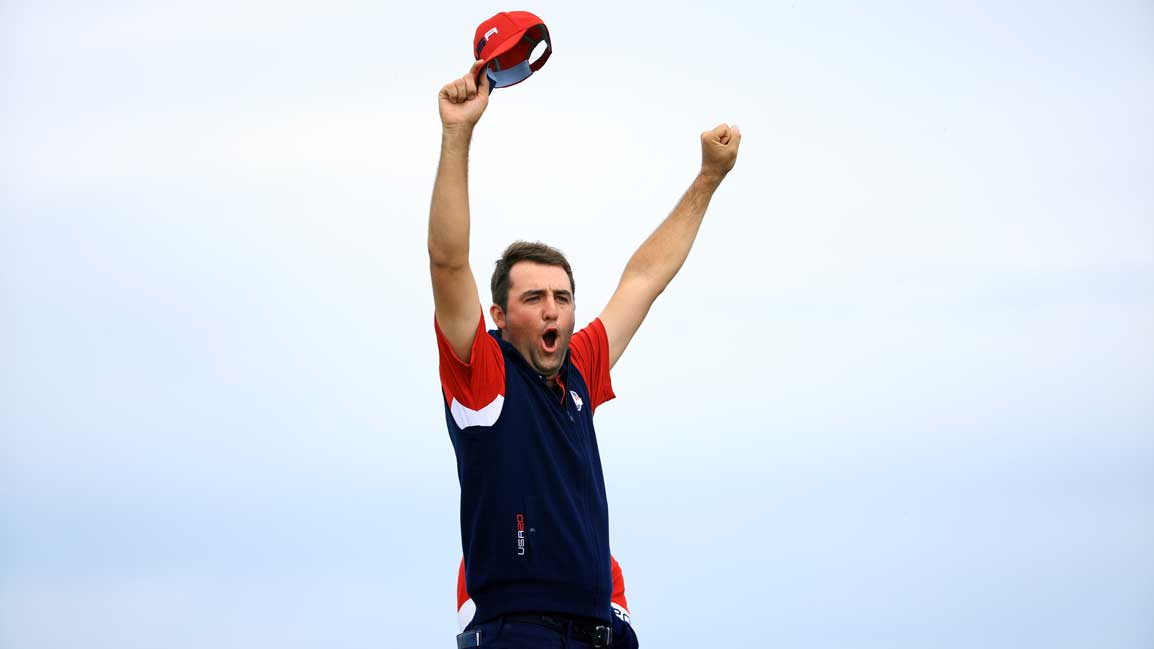
The Americans said, Theorize this.
The 3-1 total set the tone. For the Europeans, Friday morning was their best chance to get points, plural, to set the tone, to make the Americans nervous. That moment had come and gone. The Europeans tried to play catch-up for the next two and half days. The U.S. team was way too deep.
“They come with a lot of passion, a lot of energy — and a lot of game,” Stricker said of his team. Too much game for the Europeans, at least this time.
By Saturday night, it was over.
Sunday was warm and still, here in football country. (Lambeau Field, up the road; Da Bears, across the lake.) The course’s many dunes and hilltops were loaded with fans, loud and well-served.
As for the pandemic: what pandemic? There were probably 1,000 spectators wearing Stars-and-Stripes trousers for every one fan wearing a mask.
Sundays at Ryder Cups can be some of the most spectacularly tense days in all of sport. This Sunday was not. And still things were loud. People need a release, now more than ever. This Ryder Cup — played on a Pete Dye course that’s crazily manufactured and wildly beautiful — offered one.
By Sunday night, there was a lot of talk — among the players and by various broadcasters — that the Ryder Cup would be entering a new period, a period of American dominance, what with all the young and major talent coming out of the United States. It’s fun to pontificate, but also pointless. A golfer’s game can come and go. Golfers themselves can come and go. Who knows what’s next for either American golf or European golf? You can run numbers all day and into the night and not learn a thing about the future.
The most charming moment (and it should be noted that modern Ryder Cups are not noted for their charm) came at the European Sunday-night press conference. It’s kind of cruel to call it the losers’ press conference. The Ryder Cup is an international, biennial golf match between a nation and a continent that are much more similar than different. The only thing at stake is nationalist pride, and that’s a great deal. That’s what these matches show every two years — or three, this time.
At the press conference, Padraig Harrington, normally so talkative, was subdued. Later, the players broke into song, directed at Tommy Fleetwood. Ian Poulter and Lee Westwood hinted at their awareness that they had made their Ryder Cup farewells, though surely only as players. Rahm said he hoped — he hoped! — to be on future teams. There’s a lot to be said, for taking nothing for granted.
But the most moving moment of the week belonged to a European player, too — Rory McIlroy, in an interview with Henni Zuel of Sky Sports. He began to tear up, talking about what Ryder Cup golf meant to him.
On Friday and Saturday, playing three times with partners, he didn’t win a point. On Sunday, he was the first off, defeating Schauffele and getting a point that was never going to make a difference in the outcome. He said, through his tears, “I love being a part of this team.” He added later, “The more and more I play in this event the more I realize this is the best event in golf, bar none.”
And in his words, and through his emotion, you became aware of the lonely grind of modern professional golf at the elite level. Its isolation and its pressure. Ryder Cup golf is the antidote to that.
The Ryder Cup is about what a group of 12 players, led always be a captain with deep bones in the game, can do when they come together. The other 25 times a year, a player plays for himself, he wins for himself, he loses for himself, he cashes checks for himself. The necessary starting point, to a career in golf. Ryder Cup golf is beyond that.
Rory said that he felt like he let his team down. Well, you can’t control what another person feels. Along the way, he reminded us what it’s all about.
Michael Bamberger may be reached at Michael.Bamberger@golf.com.

